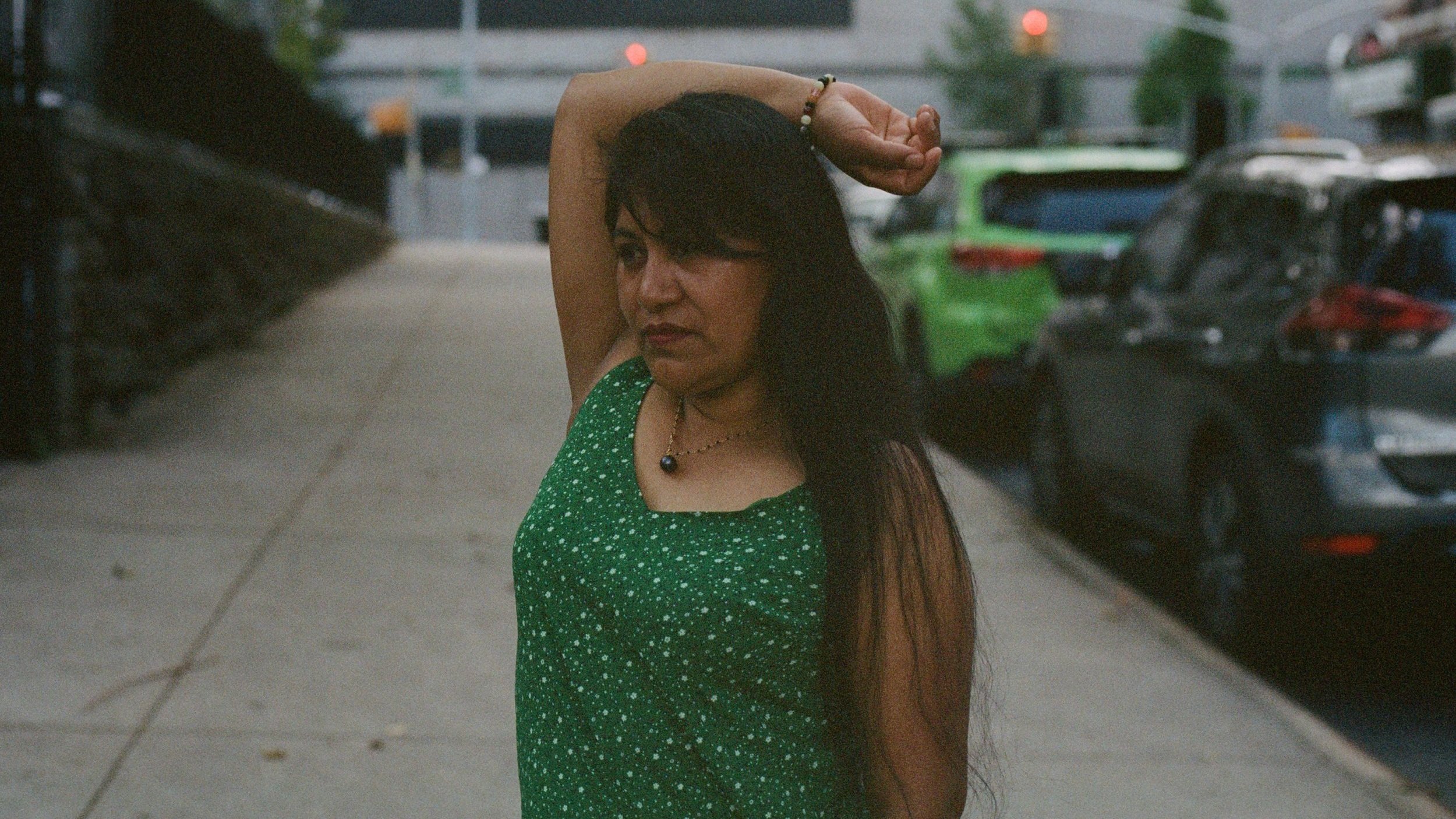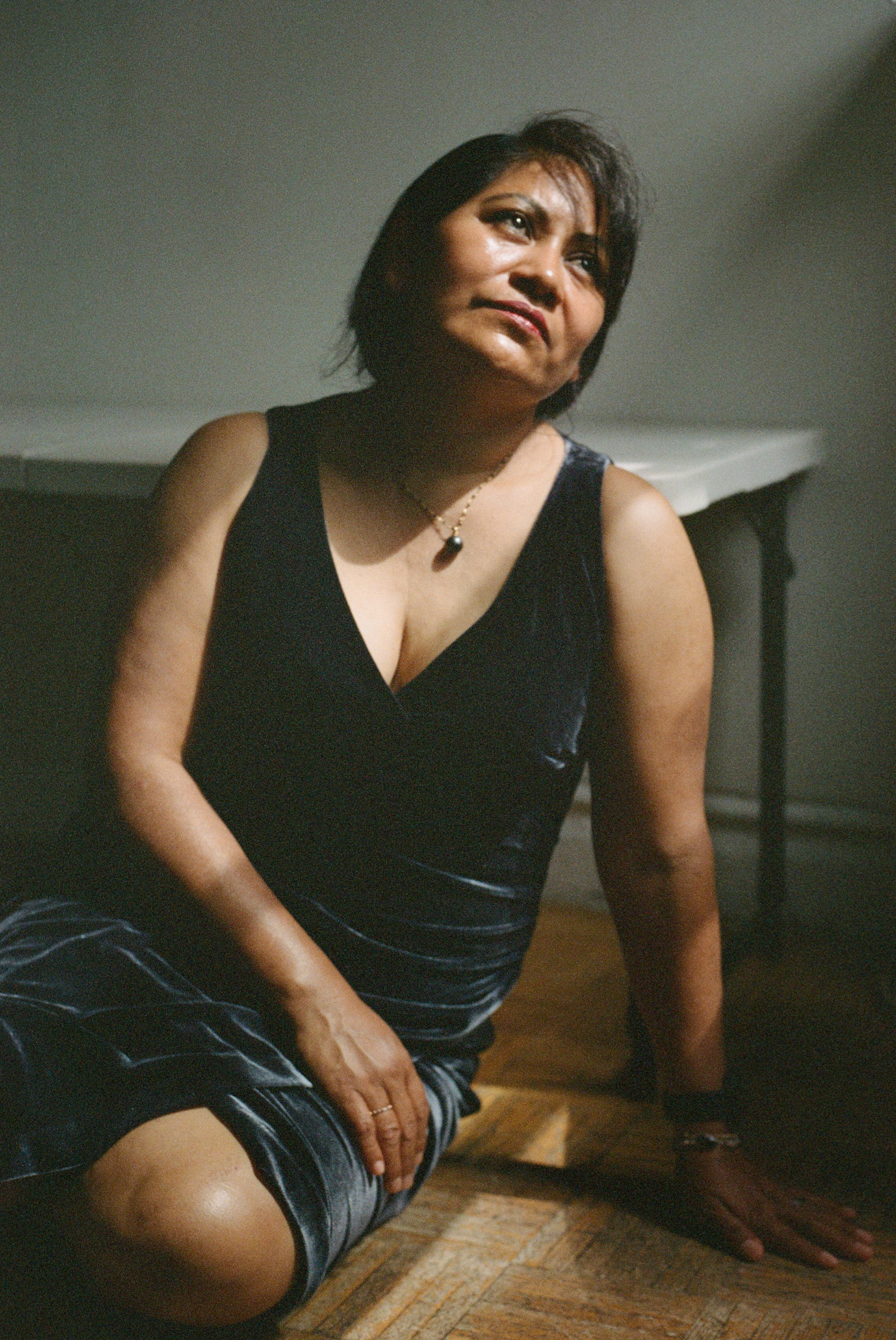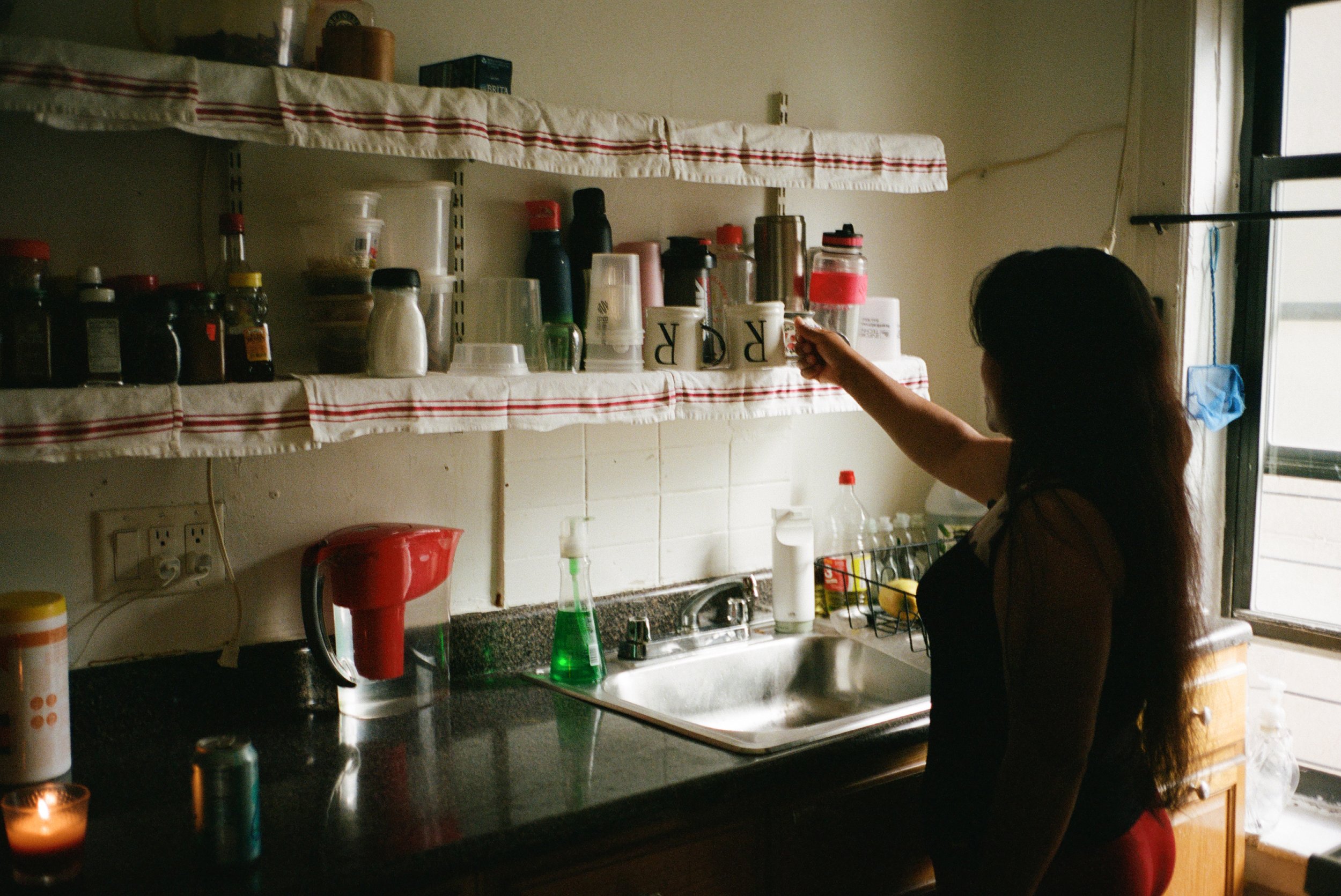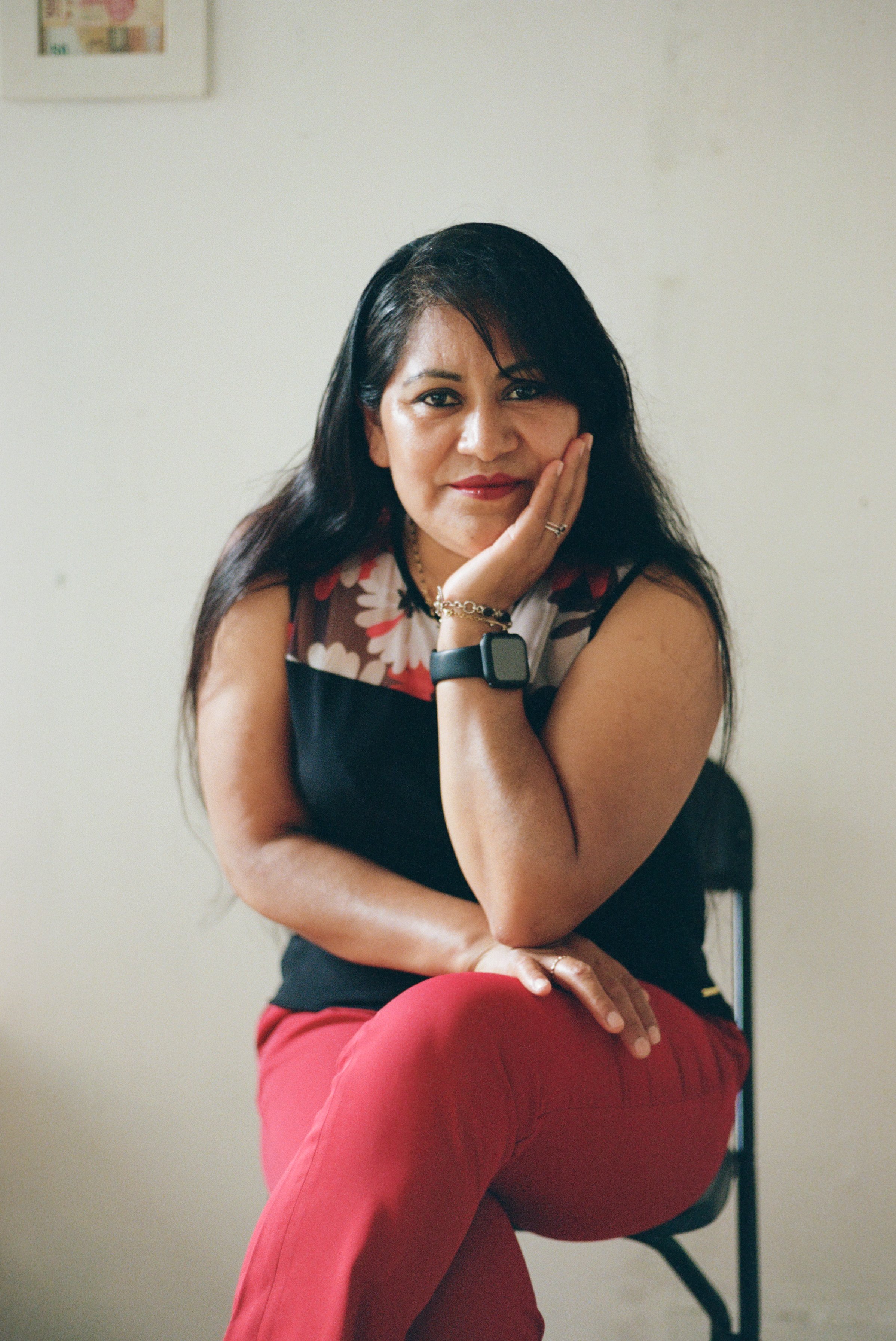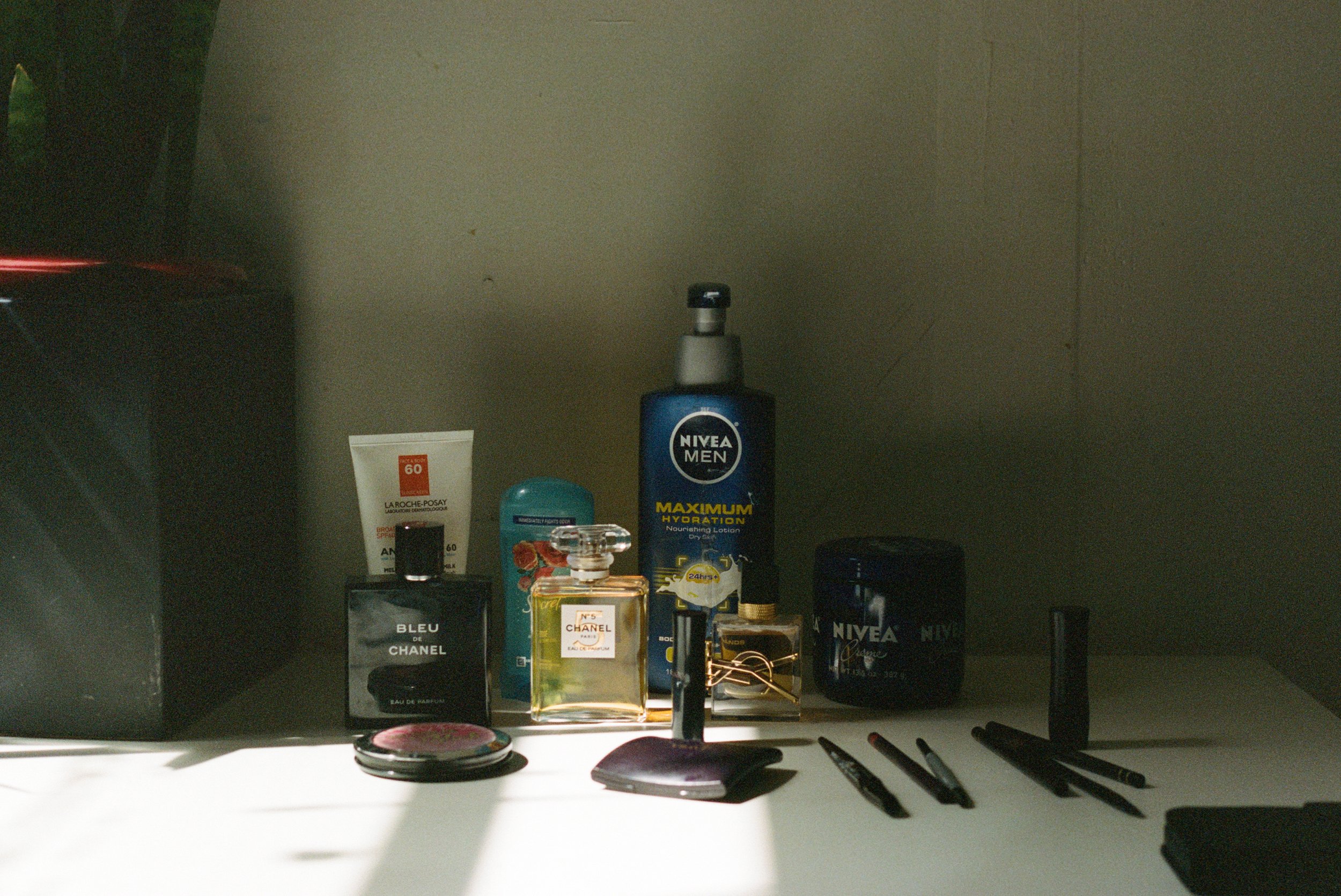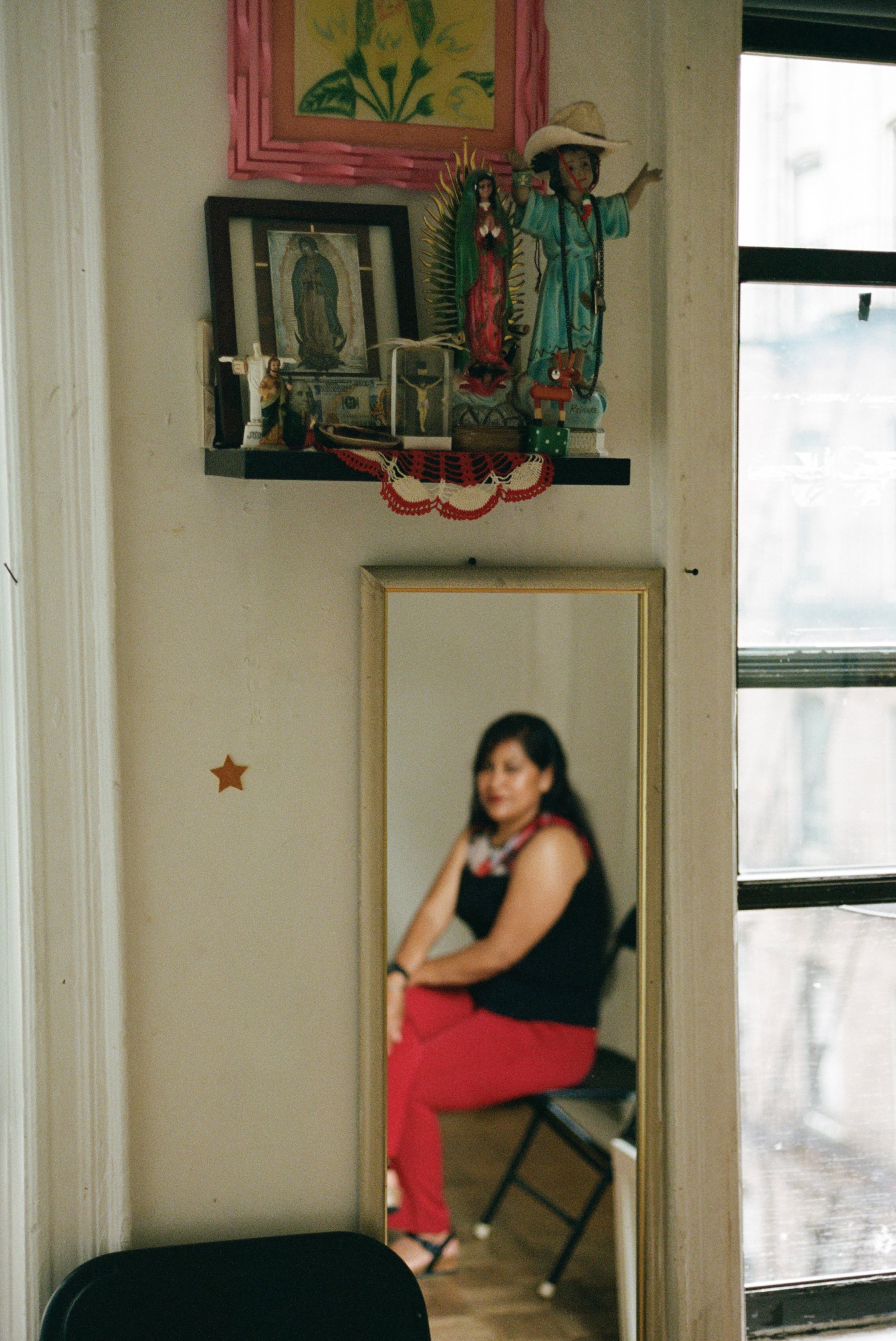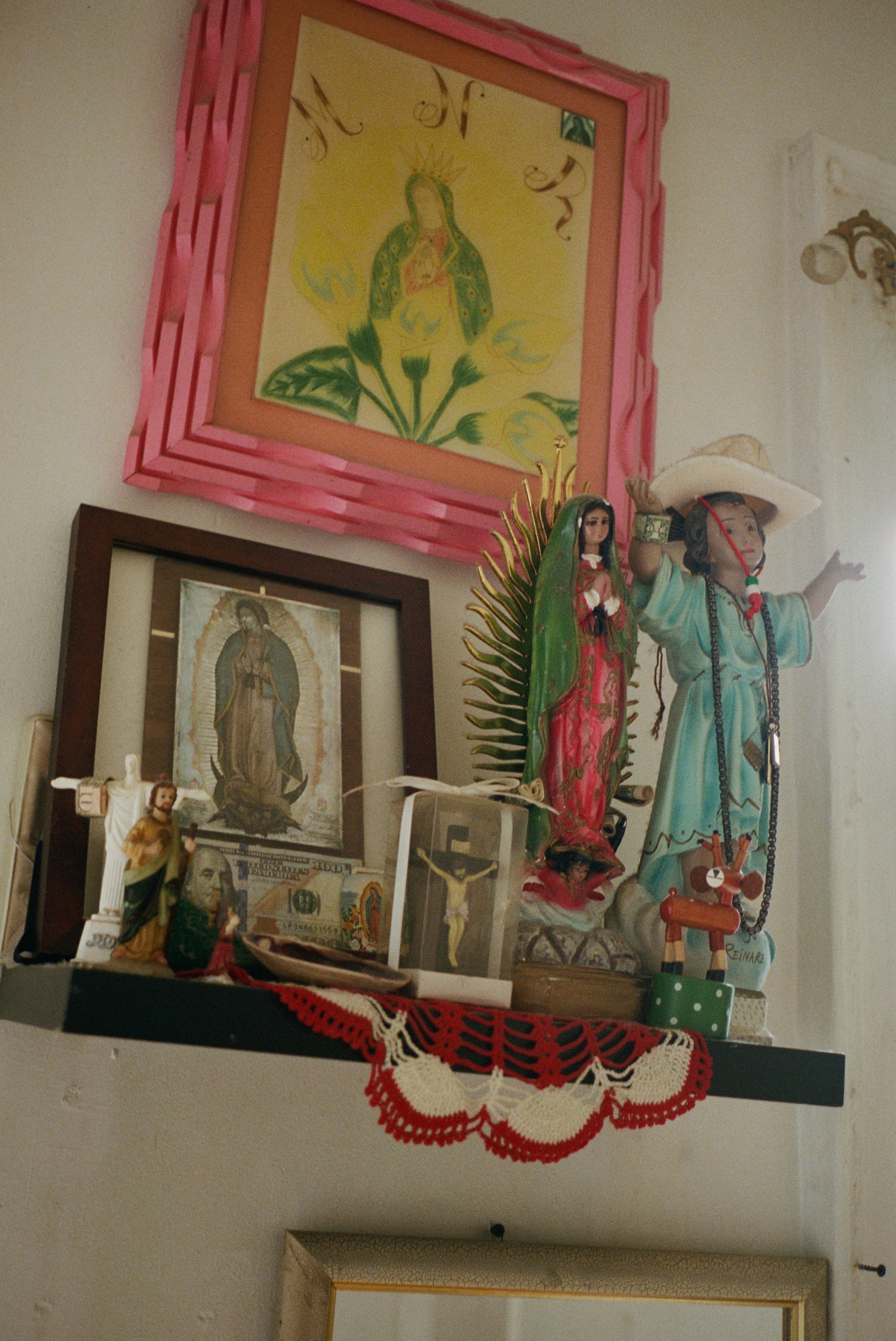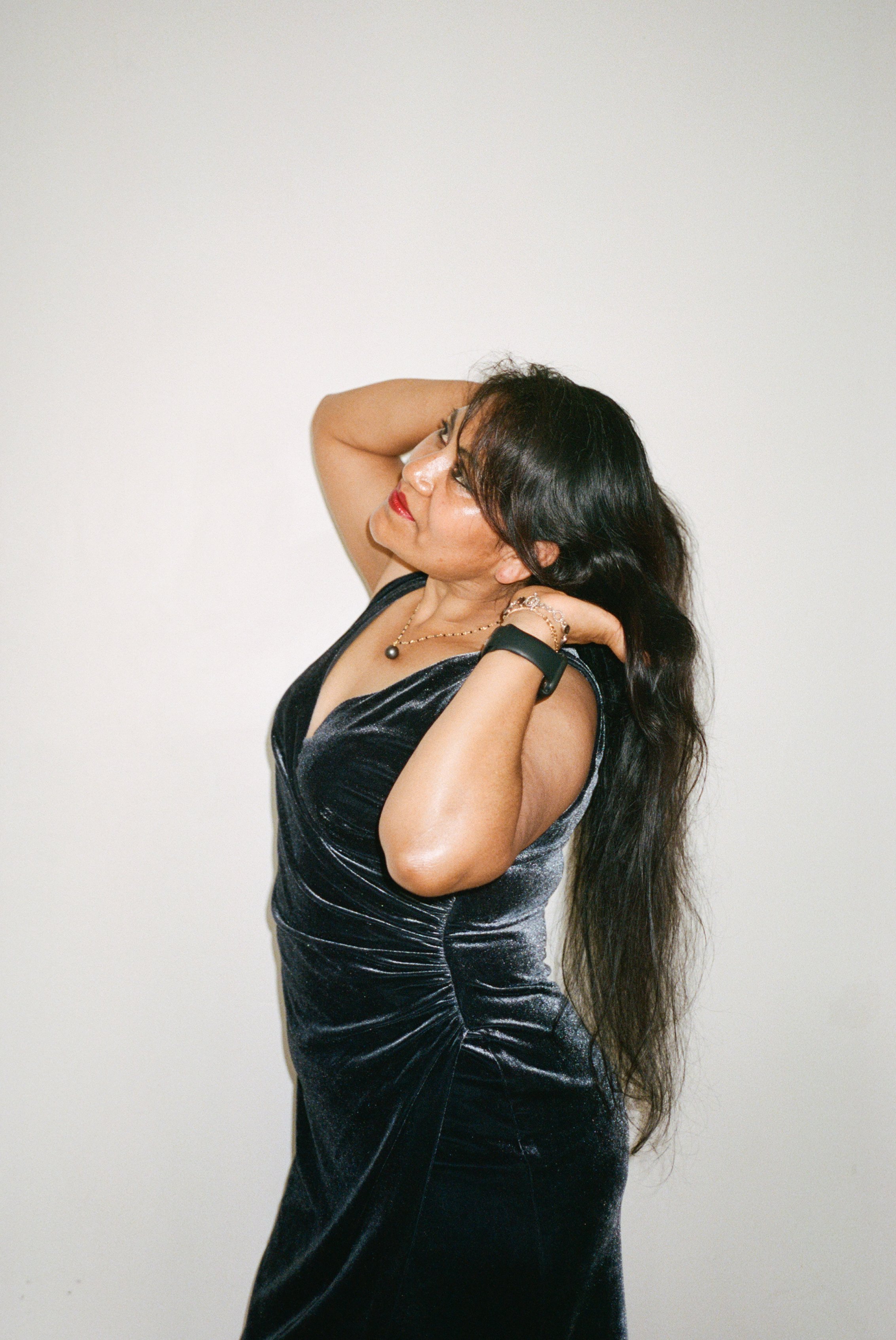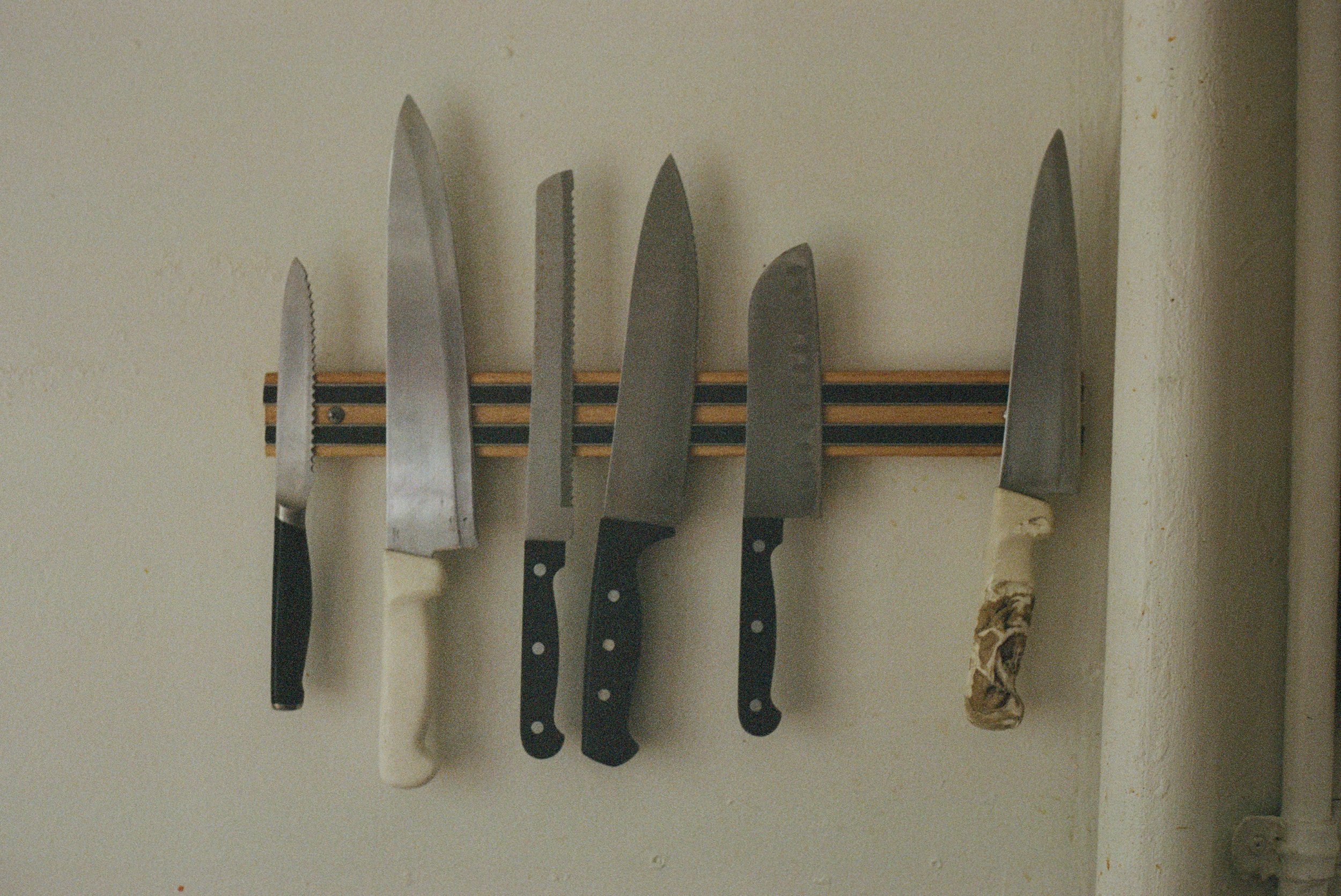Meet Rose
This interview contains content that may be distressing, including mentions of childhood trauma as well as physical and sexual violence. Please be mindful of this before reading on, and reach out to us if you have any questions.
“I have to keep going.” Housekeeper Rose came to the US at 22, leaving her young children in Mexico to provide them with a better life. Despite her significant trauma, Rose has retained a powerful determination and grace that has led her to push forward through difficult times and help other immigrant women like herself. Rose spends most days cleaning houses for clients that find her through word of mouth, and can usually be spotted outside their homes. Time off is mostly spent at home with her partner, but when they do go out, the two gravitate towards the bright lights of Times Square or Coney Island. In this conversation, Rose opens up about her difficult youth, how religion has helped her, and prioritizing family above all else.
♫ Listen to rose’s playlist | ⌨ rose’s last google search
on her morning routine
I get up at 4:50 am. I get dressed, put on La Roche-Posay sunscreen, and take the subway to work. I always arrive a little early, so I like to buy myself a coffee and a simple pastry or banana for breakfast, whatever I can find close by. I always look for the “good coffee,” you know, the kind that Americans drink since I don’t like drinking from the carts… My go-tos are Jack’s Stir Brew or Starbucks. I take it with milk and one packet of sugar.
on coming to the United States from mexico
I arrived in New York in 2000. I was 22 and left behind my kids (the youngest was just a year old) to be able to give them a better life. Once we got to New York, the driver asked me where I was staying, and I just smiled at him and said, if this is New York, you can leave me here. It was February 26th, and it was snowing. He became very angry when he realized that I didn’t actually have anyone to receive me. I told him to just leave me on the street, but he said that he couldn’t do that, this wasn’t Mexico. So he took me to his workplace at an Italian grocery store and introduced me to the manager as his sister. He also got me a room to rent in his building for $25/week. The next day, I started working at the store, doing a lot of hard physical labor — I only lasted one month.
““My partner is my best friend. I tell him what happens in my day, if I’m upset or want to cry. I don’t really have friends and I don’t go out. Sundays are our rest days. We both get up at 6 am, and I take my coffee down to do the wash while he gets up and takes a long bike ride. When he comes back, we organize our clothes, then I make us something to eat and we watch TV for the rest of the day.””
on getting her start in New York
There was an agency on 72nd and Roosevelt with employees that spoke Spanish, so many immigrants would go there to find work. Through them, I found a dry-cleaning job after quitting the Italian grocery store. The salary was $240 for 6 days, 7 am to 6 pm. After working at a different cleaning company for a bit, I went to English school and started nannying. I signed up for house cleaning jobs on the side since I had to provide for my children back home and needed money for food, school, and personal things. One of my clients — a Filipino woman, who has become a friend — saw that I got exploited for my work by the agency. They would charge $150, but only gave me $30. So she recommended me directly to another job and it’s been word of mouth since 2006.
on what her jobs have taught her
I’ve learned a lot from these jobs, but I learned a lot from my parents as well, who always taught me to be humble and responsible. What’s important is to not take anything that doesn’t belong to you, since there are people who will purposely leave things or money out to catch you in the act. You also have to be punctual and diligent and follow orders. But it’s most important to be humble.
on the role religion plays in her life
I’m Catholic and every day I ask God to bless my path and my work, to multiply every cent, and never let my family go hungry. I pray at home, and I have a small shrine to the Virgen de Guadalupe that I worship.
““We love going to Times Square and Coney Island. We take the train down in the afternoon and return at 8 pm. I am from Guerrero close to Acapulco, so it reminds me of my childhood.””
on her upbringing, early trauma, and relationship with her children
I don’t think my mother ever loved me. I was the only daughter out of 8 children, and there is a chance my aunt is my biological mother. But she still raised me, and I love her very much. We grew up having nothing. We were always barefoot because my parents couldn’t afford to give us shoes, and I didn’t go to school. I ran away from home at the age of 10 and got help from a 38-year-old man. He abused and raped me — we had 2 kids starting when I was 14 years old. When he died, I tried to go back home, but my mom wouldn’t allow me in. So I rented a house with my kids, got a job, and eventually had an agreement with my mom that she would take all the money I earned and take care of my children. I worked really hard to save money as a food vendor and used that to come to the US.
My kids are the motor that keeps me going every single day. To talk about it all is very difficult, but I was able to see a psychiatrist here. They helped me to draw out my pain and emotions little by little. I tell myself that all of this happened to me because I was too young to take care of myself and didn’t have anyone to protect me, but this will not be my children’s story. I’m also responsible for my 3 granddaughters, who I’ve never met. I have a constant fear that what happened to me will happen to them. That’s why I’m staying in the US longer than anticipated and saving all my money. I want my family to join me here. It doesn’t matter to me that I don’t have much day-to-day. What’s most important to me is that there is never food missing at the table back home — that my family wakes up every morning and doesn’t have to be hungry, and that they fall asleep with full bellies.
““I’ve met many other women, often Mexican like myself, who I see suffering, who get hit, even here in New York. I try to help and tell them to not let their husbands continue that behavior — to start working and stop having kids. I tell them to call me if they need work. Still, I think these women are frightened by the way they’re treated. For me, I don’t fear much because I had to face a lot of hardship from a very young age.””
on losing her daughter during the pandemic
Two years ago, I wanted to go back to Mexico and had everything planned out, but unfortunately, the pandemic came and I lost my eldest daughter to Covid. I’m basically back to square one now since my daughter left behind 3 children who I now provide for as well. It’s like I am in a room with no way out because I feel like I have to start all over again. The oldest girl is 13, the next one is 12, and the youngest is barely 5.
on surviving without work for a year
We lived off our savings because work completely stopped for us for about a year. We found out that there were organizations giving away groceries in the city, then the schools provided meals, so we were able to eat, but we basically drained our entire savings by paying rent. Since we are immigrants, we couldn’t benefit from rent freezes, and our landlord had us pay every month.
on her personal style and beauty routine
I love shopping at Marshalls because it’s affordable. I love wearing dresses and extremely high heels that I can barely walk in. I don’t really have a fashion or beauty routine — I just make it up as I go.
Products I use regularly are Nivea Creme and Secret Delicate Rose deodorant. I also love Chanel Number 5.
images by clémence polès, interview clémence polès & marta cros, translation dariela teran

